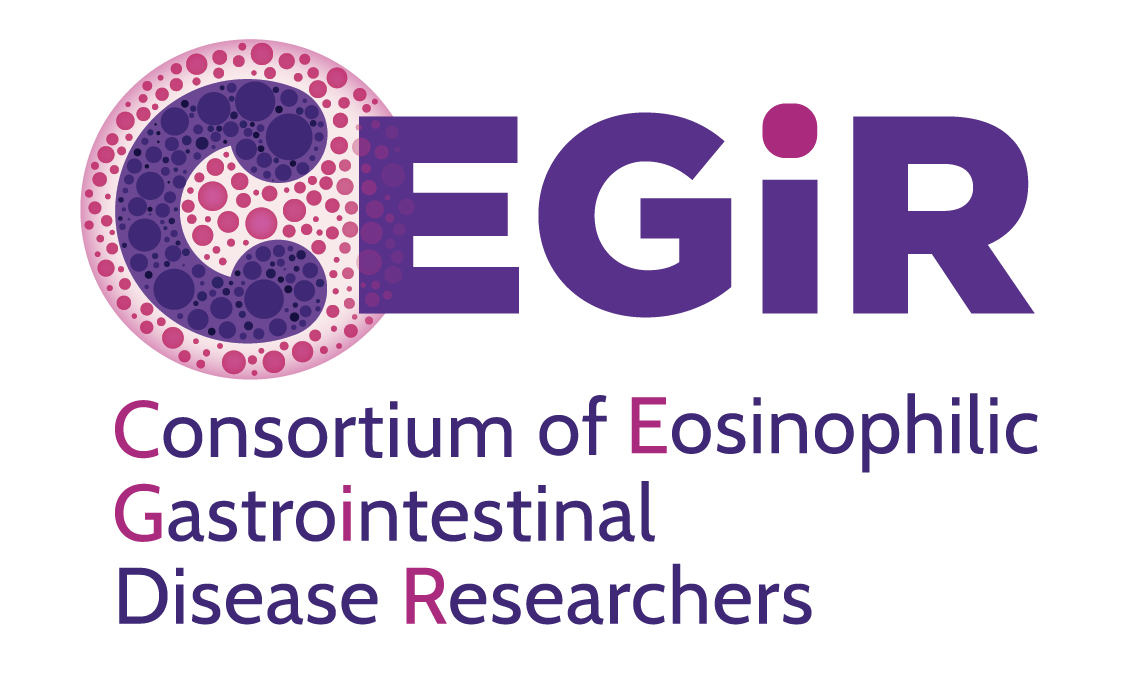7812: Pilot Assessment to Find Evidence of Gastric Motility Abnormalities in Eosinophilic Gastric Disorders (OAT-FEED)
OAT-FEED
PilOt Assessment To Find Evidence of Gastric Motility Abnormalities in Eosinophilic Gastric Disorders
This research study is funded by CEGIR internal gift funds.
What is the goal of OAT-FEED?
CEGIR is conducting this study to learn more about Eosinophilic Gastritis (EoG) and if patients with EoG experience problems with stomach emptying. As part of that goal, one area of study will compare the relationship between stomach emptying (the time it takes for food to leave your stomach) with what the stomach tissue samples look like under a microscope. The study aims to answer a series of questions, including the following:
- How many patients in the study have problems with their stomach emptying normally?
- Is the time it takes for food to leave the stomach related to the activity level of EoG?
This study is designed to give researchers and clinicians a better idea of how common it is for EoG patients to have difficulty with emptying food from their stomach, explore the relationship between EoG disease activity and time it takes for food to leave the stomach and assess how this information could be used in the future to help guide diagnosis and treatment plans.
OAT-FEED is a multi-center, observational study of adults with EoG.
What is an observational study?
An observational study is a type of study in which study participants are observed, and outcomes are measured, but no intervention or treatment is given to the participants.
Will participating in the OAT-FEED study interfere with your current treatment plan?
No. Since the OAT-FEED study is an ‘observational’ research study, it will not interfere with, change or otherwise intervene with your treatment plan.
If you participate in OAT-FEED, what is involved?
If you agree to participate in this study, and it is determined that you are able to participate, you’ll undergo multiple procedures. You will have a gastric emptying study (GES) where you’ll eat oatmeal with a small amount of radioactive material in it. This helps to determine if there are any problems with how well your stomach moves. Next, you’ll have an upper endoscopy (camera study) in which small pieces of tissue samples (biopsy) will be taken to evaluate your eosinophilic gastritis. We also plan to obtain tissue samples for research. You’ll also have a water load test where you’ll drink water until you feel full. As a study participant, you will periodically be asked to complete questionnaires. These questionnaires may take 5 to 10 minutes to complete.
Please contact a study site for more details of what is involved with participation.
Should you participate in OAT-FEED?
You and your family are in the best position to make the decision about whether or not you wish to participate. Currently, only the clinic sites listed below are enrolling for the OAT-FEED trial, so travel to/from one of these locations will be necessary for study participation. With the exception of patients being seen at National Institutes of Health (NIH), where travel expenses and care may be covered, travel and other costs related to the usual care of your eosinophilic disorder will be the responsibility of you and/or your insurer. There is no charge to you or your health insurance company for any costs that are directly related to portions of this observational study performed solely for research purposes. You will receive no payment for participating in OAT-FEED.
This study presents a significant opportunity for the EoG patient community to take an active role in helping CEGIR gain a better understanding of EoG. Every effort will be made to enroll as many patients as possible, but there are no guarantees that everyone who wants to participate will be able to enroll. If you have questions about the study and/or specifics about what is involved, please contact one of the study coordinators listed below.
Who is eligible to participate in OAT-FEED?
- Adults between the ages of 18 and 59 able to provide written permission (consent).
- You must have been diagnosed with Eosinophilic Gastritis (EoG).
- You must have had elevated levels of eosinophils in your stomach.
- You must have symptoms related to your EoG that started at least one year or more before seeing if you’re eligible to join the study (nausea, vomiting, abdominal pain, early satiety).
- Tolerance to and willingness to consume oat and oatmeal products in this study.
You may not be eligible to participate in OAT-FEED if:
- You have a diagnosis of Eosinophilic Enteritis (EoN).
- You have inflammatory bowel disease (e.g., Crohn’s disease or ulcerative colitis).
- You have systemic sclerosis, lupus or eosinophilic fasciitis.
- You take opioids within 2 weeks of seeing if you’re eligible for the study or you plan on taking opioids during the study period.
- You have a history of gastric surgeries or procedures such as pyloromyotomy, pyloric dilation, pyloric resection, vagotomy or bariatric surgery etc.
- You are pregnant or nursing
- You have uncontrolled diabetes mellitus or thyroid disease
- You have certain genetic or connective tissue diseases
Who should you contact if you wish to participate and/or have questions?
Use the information to the right to find a participating site near you.

